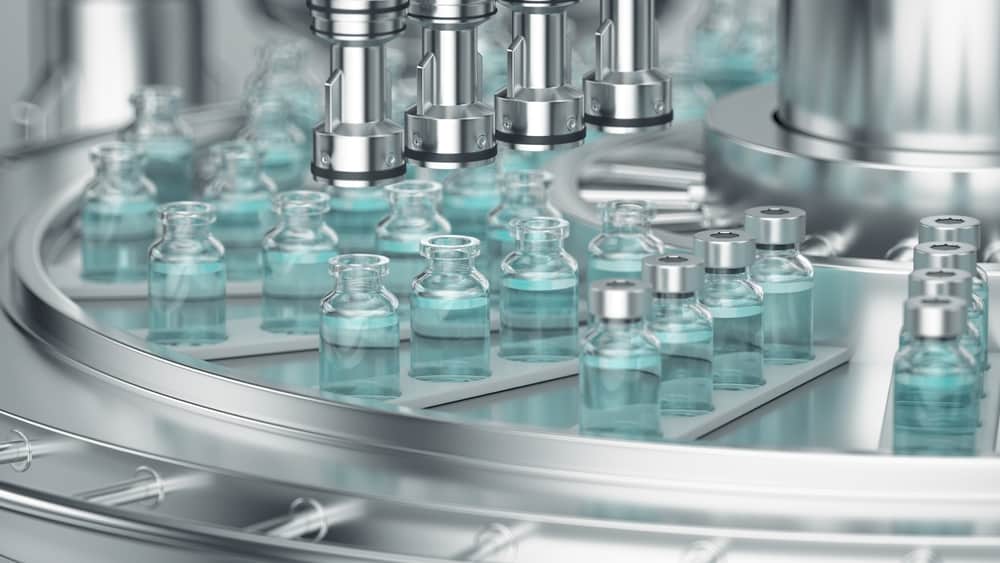Chimeric antigen receptor-T cell (CAR-T) therapy is an exciting treatment modality for blood cancers that do not respond to standard treatment. But manufacturing these CAR-T therapies brings challenges. How can life science companies overcome them to minimize costs and improve patient access?
In patients with cancer for whom chemotherapy proves unsuccessful, CAR-T therapy may provide an avenue of hope. In CAR-T therapy, T cells — a type of white blood cell — are collected from a patient or donor. The cells are then genetically engineered to express a so-called chimeric antigen receptor, which binds to antigens on the surface of tumor cells.
This enables the CAR-T cells to recognize and eliminate cancerous cells and tissue with breathtaking results: Kymriah, which entered the market in 2017 as the first CAR-T therapy, has resulted in remission rates of 83% in pediatric patients with a type of acute lymphoblastic leukemia.
Manufacturing CAR-T therapies is not without challenges, however. These include high costs, difficulties in creating uniform treatments from variable starting material, and ensuring quality and authenticity of the final CAR-T therapy product in a timely manner.
A challenging road
The currently available CAR-T therapies on the market are autologous, meaning that cells are taken from a patient to create an individualized treatment. A major challenge is creating a uniform product that achieves the same results every time a therapy is created from scratch.
 “The patients are in different stages of their tumors, and also in different stages of treatment,” explained Tatiana Golovina, Executive Director Cell Therapy at WuXi Advanced Therapies — a Contract Testing, Development, and Manufacturing Organization — and the Advanced Therapies Business Unit of WuXi AppTec. “However, the final product specifications are pretty similar.”
“The patients are in different stages of their tumors, and also in different stages of treatment,” explained Tatiana Golovina, Executive Director Cell Therapy at WuXi Advanced Therapies — a Contract Testing, Development, and Manufacturing Organization — and the Advanced Therapies Business Unit of WuXi AppTec. “However, the final product specifications are pretty similar.”
As a result, the cost of manufacturing individualized CAR-T treatments using patient-specific cells is high.
Additionally, manufacturing CAR-T therapies is in itself a complex process with many moving parts. For instance, the production facility requires a range of ancillary materials, reagents, and culture media that are produced by different companies to create one cell therapy product. Coordinating this adds logistical complexity.
Building a platform
In a platform approach, CAR-T manufacturing can be simplified using a pre-optimized production process that leads to consistent, high-quality results.
WuXi Advanced Therapies’ Closed Process CAR-T Cell Therapy Platform combines several technologies, in-stock materials, and experienced technical staff. This one stop shop for manufacturing and testing offers cost and time savings for the CAR-T developer.
“For the platform, we built a predefined process using the best knowledge in the field. We pre-qualify equipment and make sure materials are Good Manufacturing Practice-compliant and feasible for use in human patients,” Golovina explained.
“Also, our integrated analytical testing does not have to be developed anew for each client and CAR-T process, allowing for treatment manufacturing and testing to be streamlined into a single process.”
By evaluating current reagents on the market, WuXi Advanced Therapies identifies those best-suited for CAR-T therapy manufacturing.
“Some contract manufacturing organizations work with specific vendors and build their process around certain types of equipment,” said Golovina. “Instead, we are vendor blind — we try to use what’s best, what’s optimal for the process, and what’s available on the market. This flexibility lets us constantly improve the platform.”
This means materials are evaluated by WuXi Advanced Therapies for their availability and appropriateness for use in humans, and how well certain equipment works in the overall manufacturing process.
Another distinguishing factor of WuXi Advanced Therapies’ platform is the option to manufacture the lentiviral vectors needed to genetically engineer CAR-T cells within the same platform. As a result, CAR-T developers can rely on a single organization to deliver the CAR gene to a patient’s T cells and expand them into the final CAR-T therapy product, increasing manufacturing efficiency.
Test-taking cells
Once the CAR-T therapy has been created, the cells need to undergo thorough testing to assess their safety and potency, and confirm that the engineered cells are in fact T cells. Testing must also demonstrate that the cells are present in a high enough quantity to elicit a therapeutic benefit.
 “We have to ensure that the product is safe,” explained Heather Malicki, Executive Director of Analytical Development and Testing Technologies at WuXi Advanced Therapies. “Testing looks at any contamination that could occur, from unwanted cell types to contaminating microorganisms.”
“We have to ensure that the product is safe,” explained Heather Malicki, Executive Director of Analytical Development and Testing Technologies at WuXi Advanced Therapies. “Testing looks at any contamination that could occur, from unwanted cell types to contaminating microorganisms.”
“Showing that the CAR is being expressed appropriately and that the CAR-T cell is functional” are fundamental aspects of testing CAR-T therapies, added Malicki.
Bringing these different tests under one hood is part of WuXi Advanced Therapies’ integrated testing approach. This helps simplify testing procedures and timelines compared with a decentralized approach, which outsources tests to different companies.
“Instead of sending samples to multiple places and coordinating shipments, having one vendor who can manufacture the material and take it directly into the testing laboratories is an advantage,” said Malicki.
The challenges of testing
CAR-T therapy testing must be conducted within short turnaround times and using small quantities of starting material to rapidly reach patients and still be effective. But doing so poses challenges.
“Speed is very important,” said Malicki. “A lot of the CAR-T constituents are fresh products that can’t be frozen.”
Additionally, standard assays such as sterility tests require up to two weeks to conduct. Assays for detecting disease-causing bacteria called mycoplasma can take even longer.
And when it comes to treating patients, Malicki underscored that “they are waiting for the therapy. So, wherever possible, we have moved away from standard tests to rapid tests that meet regulatory requirements.”
“Testing CAR-T cells in small amounts is necessary because having enough product to give back to the patient is critical to making a difference,” added Malicki. “You have to dose the patient based on a specific CAR-T cell count and the viability of those cells.”
Integrated testing can help meet the tight time frames that CAR-T developers face and ensure that enough cells remain to treat the patient.
“One centralized team working together from the beginning makes it easier to coordinate manufacturing and testing,” said Malicki. “This allows oversight of the critical timeline and helps us release the product to the patient as quickly as possible.”
Paving a path ahead
By design, an autologous CAR-T therapy is created for an individual patient. To treat a greater number of patients with one product, current research is focusing on allogeneic CAR-T therapies, which are created from donor cells, stored, and distributed in an off-the-shelf manner.

Because the cells can grow so well during culturing, manufacturers can be pressed for resources to process and preserve the cultured donor cells.
“WuXi Advanced Therapies is also thinking about downstream process optimization, like developing more powerful dosing equipment and controlled freezers to fill the CAR-T treatment in bags or vials and cryopreserve it in a final step,” explained Golovina. “This is an unmet need for clients who approach us with off-the-shelf projects.”
Platforms that bring together different production materials and integrated testing can create a robust, quality-assured product. With further innovations in streamlining manufacturing and testing for both autologous and allogeneic treatments, CAR-T therapies will be able to reach more patients at reduced costs.
Now is the time to give your manufacturing processes a revamp! See how WuXi Advanced Therapies can assist with your CAR-T cell therapy needs today.
Images via Shutterstock.com. Headshots courtesy of WuXi Advanced Therapies
This article was originally published in April 2022.





